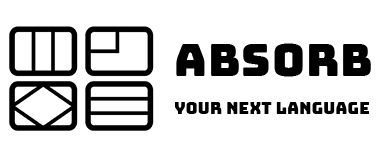You can learn a new language largely just by reading. It’s true!
When I was younger, I used to struggle with just learning a new language. I struggled with grammar rules, vocabulary words, and even pronunciation. But then, one day, I discovered the power of reading-based methods for language learning, and I never looked back.
With reading-based methods, you can learn a language simply by immersing yourself in it. Find books, articles, and other materials in the language you want to learn, and start reading. At first, you may need to rely on a dictionary or translation tool, but as you practice, you will find that you begin to understand more and more. Soon, you will find yourself reading fluently, without even realizing it.
Not only does reading help you learn new words and phrases, but it also helps you to learn grammar in context. Rather than memorizing dozens of grammar rules, you simply begin to understand how the language works as you read. This leads to a more natural and intuitive feel for the language, making it easier to speak and write in the language.
But the benefits of reading-based methods go beyond just language learning. Reading can also improve your cognitive abilities, help with concentration, and even reduce stress. So, whether you are looking to learn a new language, or just want to improve your brain power, pick up a good book and start reading!
But reading a new language is difficult!
It’s almost impossible to start from scratch when learning a new language simply by picking up a book in that language and starting to read it. Imagine you pick up this book in French. Can you tell what’s being said?
C'était le meilleur des temps, c'était le pire des temps, c'était l'âge de la sagesse, c'était l'âge de la folie, c'était l'époque de la foi, c'était l'époque de l'incrédulité, c'était la saison de la Lumière, c'était la saison des ténèbres, c'était le printemps de l'espoir, c'était l'hiver du désespoir, nous avions tout devant nous, nous n'avions rien devant nous, nous allions tous directement au Paradis, nous allions tous directement à l'opposé - en bref, la période était si loin de nous, qu'il est nécessaire que certaines de ses caractéristiques les plus bruyantes soient inscrites à l'ordre du jour, pour être reçues, pour le bien ou pour le mal, à l'évaluation superlative seulement.That book is a “Tale of Two Cities”, but translated into French. It’s impossible to start just by picking up this book and starting to read. You have no context to the words, and no familiar sounds and words to connect them to.
Learning to read works for children because they are being exposed to these words outside of the books they are reading. They might hear a parent say “apple” at a store, and see the sign, and associate the word with the object. Thus reading a sentence “She ate an apple” has an implied meaning – it involves an apple somehow! There’s something to start with there.
But assuming you are not living in France right now, your ability to be immersed in a language is low. Lots of immersion learning techniques try to get around this, but they all fail because they can’t replace the power of true immersion. That being said, reading-based methods can still be incredibly effective. The key is starting small and building up your comprehension gradually. Don’t try to read an entire novel in your target language on day one. Instead, start with children’s books or short articles and work your way up. Look up words and phrases as you go, and try to remember them for future use. Set small goals and celebrate your progress as you achieve them. Another helpful tip is to read aloud, even if you are only reading to yourself. This can help you with pronunciation and speaking skills as well. Reading-based methods may not be the quickest way to learn a new language, but they are effective and enjoyable. So, grab a book in your target language, and dive in! Who knows, you might just discover a new favorite author or genre along the way.
